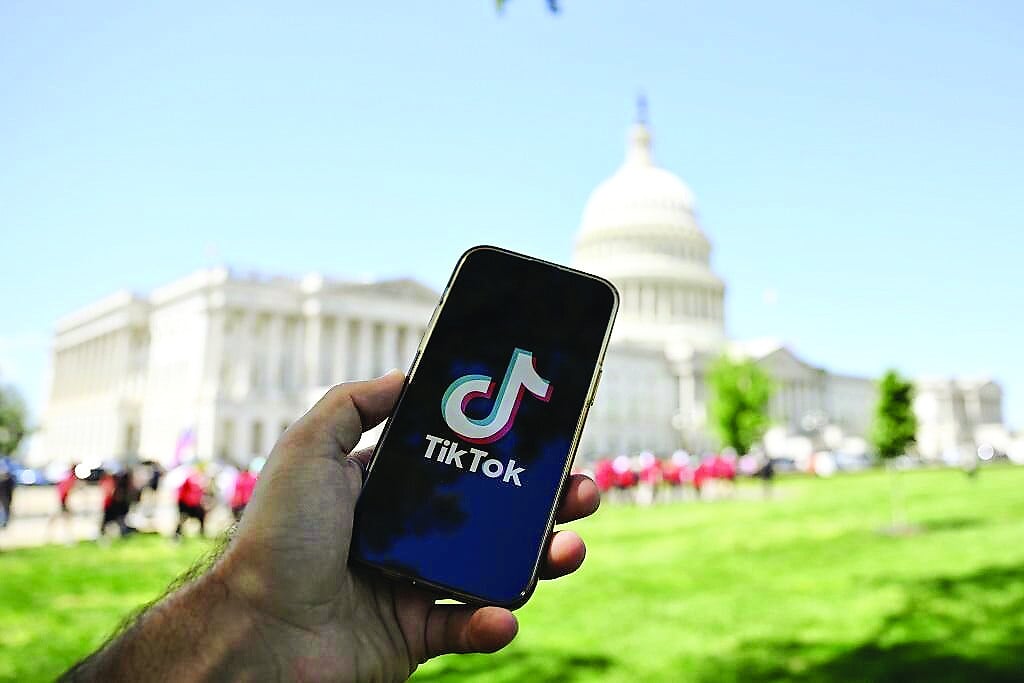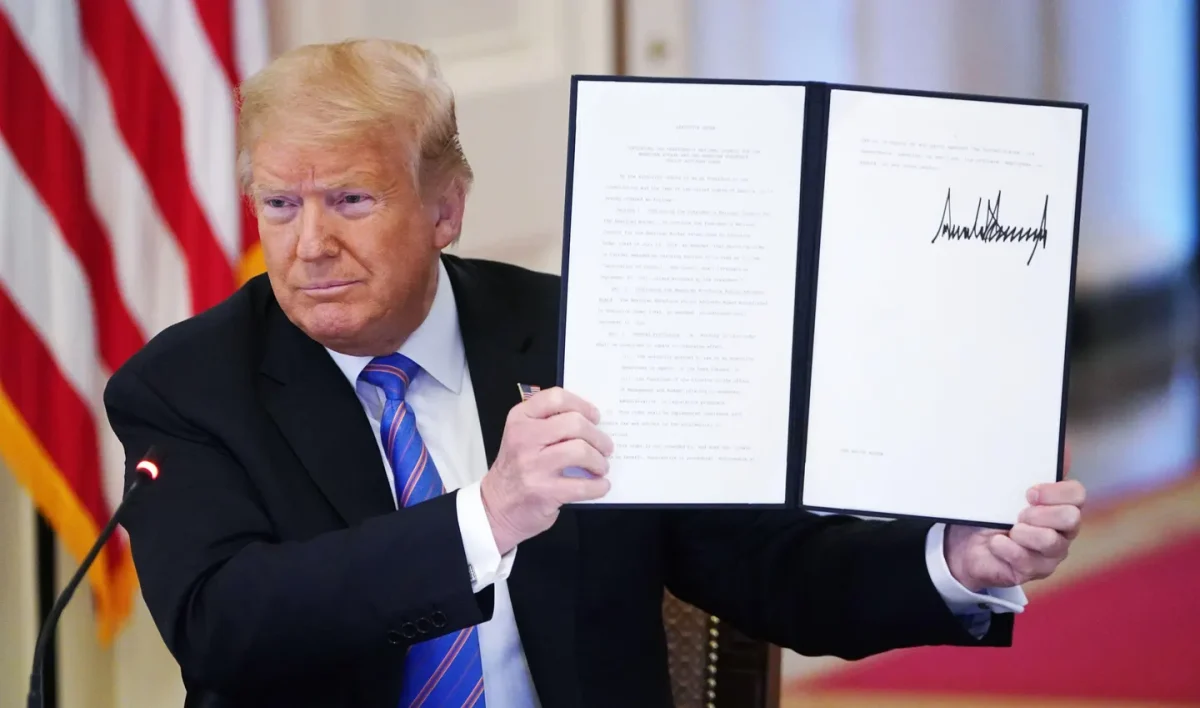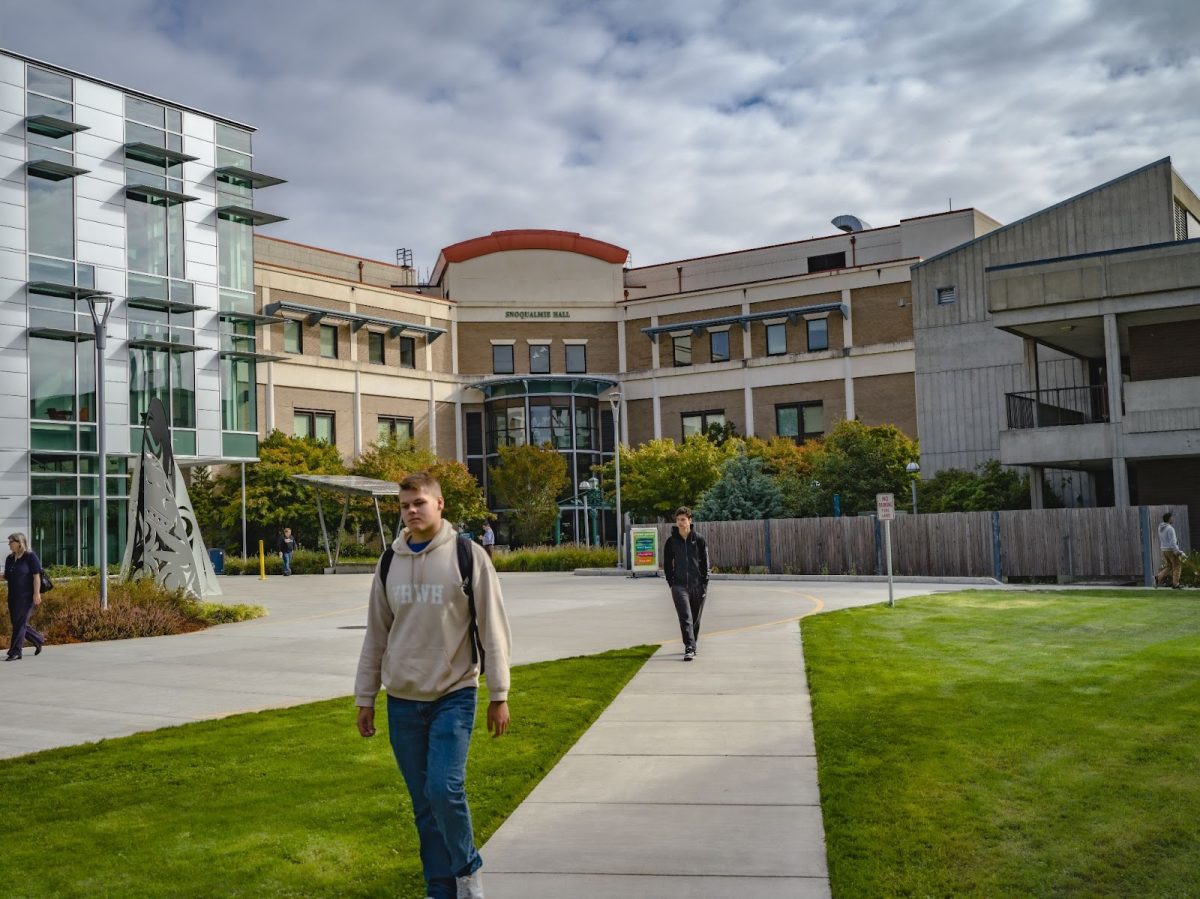The clock is ticking as the expiration date for the widely popular Chinese-owned social media platform TikTok draws near on April 5, which has left users patiently anticipating its ultimate fate.
After an unprecedented TikTok ban took place on Jan. 19 due to its services belonging to a “foreign adversary” as deemed by the United States, President Donald Trump signed an executive order the following day, which resulted in temporarily delaying the ban for a 75-day period. During this interval of time, his administration plans on pursuing a domestic buyer in the U.S. to ensure TikTok’s parent company, ByteDance, relinquishes partial ownership of the platform to American investors.
However, if a buyer cannot be found within this grace period, users may have to bid farewell to the app forever.
While Nina Kunimoto, the head of the sociology department at Edmonds College, is unsure if the ban is going to be permanently implemented in the coming months, she said that students will be forced to rebuild their online communities on alternative applications in case the worst comes to pass: “It will just be a little bit of a pain to shift over but it will settle itself out.”
Kunimoto said she is confident that the Edmonds College community will be more than capable of adapting to the situation in spite of this pain.
As for students who currently rely on TikTok as a source of revenue, Kunimoto noted that while some will encounter hardships if the platform ceases to exist in the future, she trusts that those who financially depend on its services will be able to discover work elsewhere, confident that online entrepreneurs have a wide range of opportunities at their fingertips to earn a steady income across the Internet.
On the other hand, Kunimoto made sure to point out that TikTok shutting down could potentially lead to a domino effect which might cause other foreign social media applications to be banned at a later date. As a consequence, she said “cutting off and silencing certain groups of people” may occur, thereby restricting means of communication between international students and disrupting the social lives of many in the process.
Despite feelings of unease regarding the ban, TikTok users were eventually greeted to a notification sent by ByteDance shortly before the executive order was carried out, with a single message confirming TikTok had returned online.
Whereas many have viewed its return to be a stroke of luck and remain hopeful that a deal will be settled, the Associate Director of Student Life at Edmonds College, Eduardo Torres, is inclined to believe otherwise. Due to current trends, he is convinced that no party will salvage TikTok, claiming “the buyer is a saving grace” that serves to promote false hope to users.
“The purpose right now is to ban it,” said Torres.
While he believes the ban will inevitably transpire for a second time in the coming months, Torres expressed doubt that other foreign applications will share the same fate, given that none have quite reached the same level of popularity or influence as TikTok. Nevertheless, he still acknowledges the possibility that some foreign social media platforms might be prohibited in the future, stating that international students “absolutely have a right to worry.”
Possibly adding to this right to worry are the motivations behind the ban. Although TikTok’s services were quickly restored due to Trump’s efforts, suspicions surrounding its removal continue to grow.
The permeating belief throughout the past few years was that TikTok posed a danger to national security due to ByteDance potentially having ties with the Chinese government, which led U.S. officials to initially enforce the ban in the name of defending data privacy from foreign powers. However, Kunimoto believes the U.S. government “has not provided sufficient evidence or a plausible argument with details of how that is possible.”
Kunimoto claimed the ban was unjustified considering the U.S. government has actively refused to intervene with other social media services that collect user data in a similar manner. Instead, she suggested the anti-China sentiment which coincided with the COVID-19 pandemic may play a factor in targeting TikTok due to its Chinese ownership.
Feeling as though there is an economic agenda embedded in the ban as well, given that leaders in the technology industry likely have financial incentives to eliminate Chinese companies from the race, Kunimoto said “it almost feels like censorship in the U.S.” due to her speculation that the federal government may be favoring business endeavors over free speech by removing access to TikTok.
She also believes the spotlight placed on TikTok is partially motivated for the sake of “creating an enemy in order for there to be a distraction” from the domestic issues that currently plague our country, such as the need to confront poverty and improve healthcare.
Although a Chinese student in her class strongly urged others not to use TikTok over concerns of surveillance and censorship, Kunimoto says she remains unconvinced that the application poses a credible danger to American citizens, let alone students.
However, Torres shares different sentiments.
First using the platform during the height of the COVID lockdown, Torres felt deeply dismayed once TikTok removed its services, lamenting over the fact that “communities were being dissolved.” Following the ban, he joined others across the country in downloading the Chinese application RedNote, otherwise known as Xiaohongshu.
Even after TikTok’s revival, a sense of loss persisted within Torres.
Nonetheless, he sympathizes with government fears surrounding TikTok, going so far as to support the idea that the Chinese platform may indeed be dangerous. Still, similar to Kunimoto, Torres says the same dangers possibly demonstrated by TikTok can also be applied to American platforms, given that big tech companies extract personal information regardless of their country of origin.
Adding to this, he finds it odd that U.S. officials have displayed an unwillingness to intervene when tech companies gather user data through domestic social media, indicating that the TikTok ban might be unfair in its intentions.
“I think it’s hypocrisy,” Torres said.
Nevertheless, the uncertainty of the ban and its potential implications for TikTok going forward have given rise to the widespread notion that the application may be banned forever, which has led to extensive panic among teens and adults alike.
For students who feel concerned about the upcoming ban, Torres advises the following: search for additional social media platforms to use as backups and try to adjust to each one in case TikTok may need to be replaced. Not unlike Kunimoto, Torres claims that humans will be able to adapt to these social fluctuations and believes we will triumphantly restore our online communities one step at a time.
Though, before doing so, Torres recommends students form a dummy account separate from their personal one in order to exercise proper precautions with respect to our data privacy. Even in everyday life, he says this practice will prove beneficial for all members of the Edmonds College community, in spite of the ban at hand or the preferred social media of choice.
In the meantime, Kunimoto believes Edmonds College students can arrange protests if TikTok is deemed especially important and worthy of protection. Even for students who find it challenging to express their thoughts with confidence, she declared that the “most important thing is to organize as groups of people and not individuals.”
As such, Kunimoto maintains that contacting faculty members on campus for support may be beneficial in cultivating strength together among those who wish to valiantly defend TikTok before the deadline approaches: “Students have power. Lots of power.”







